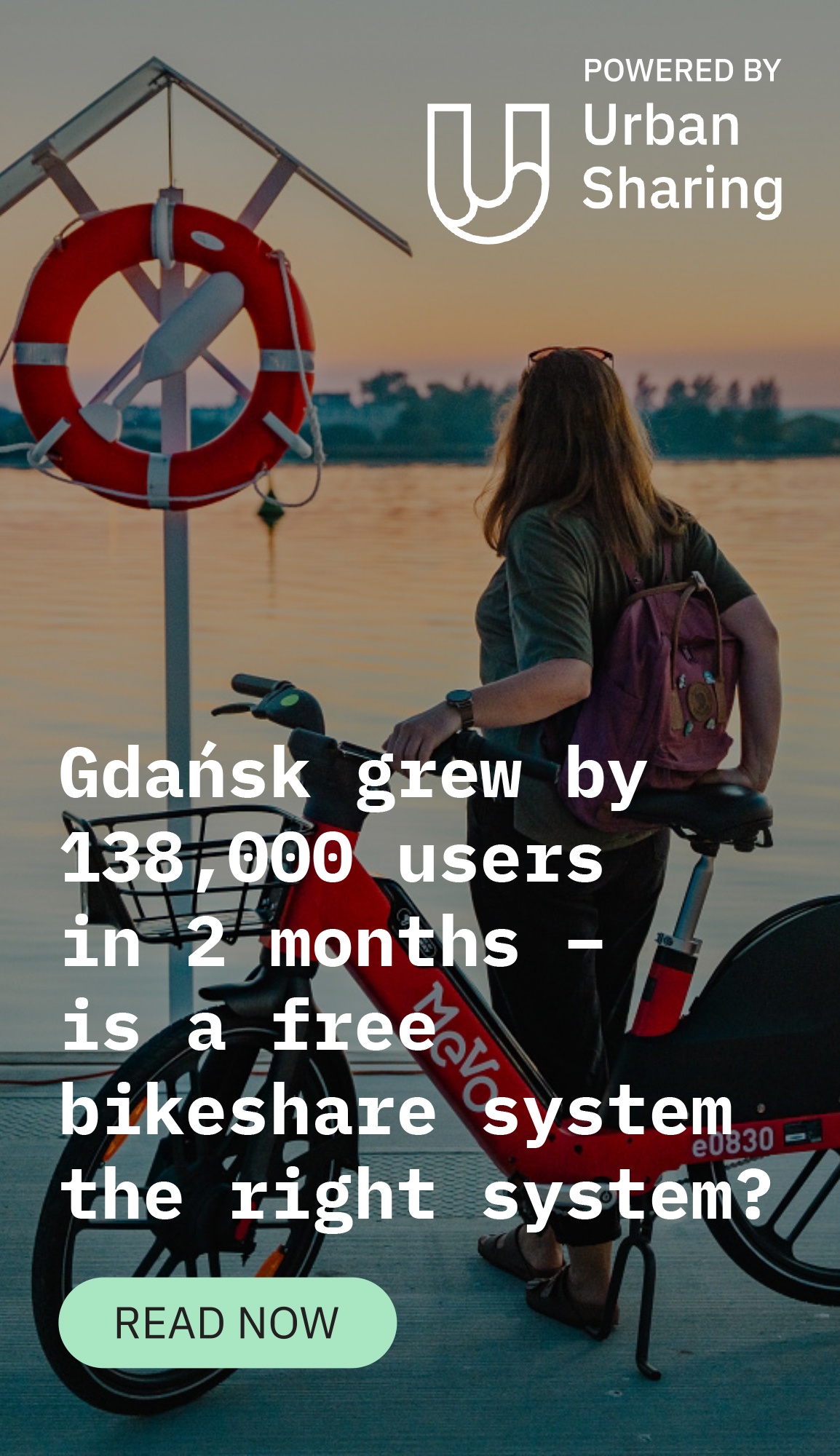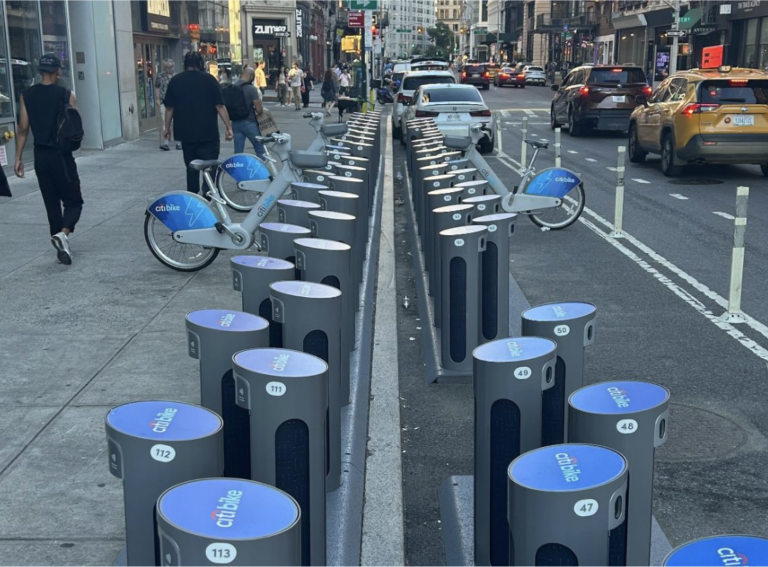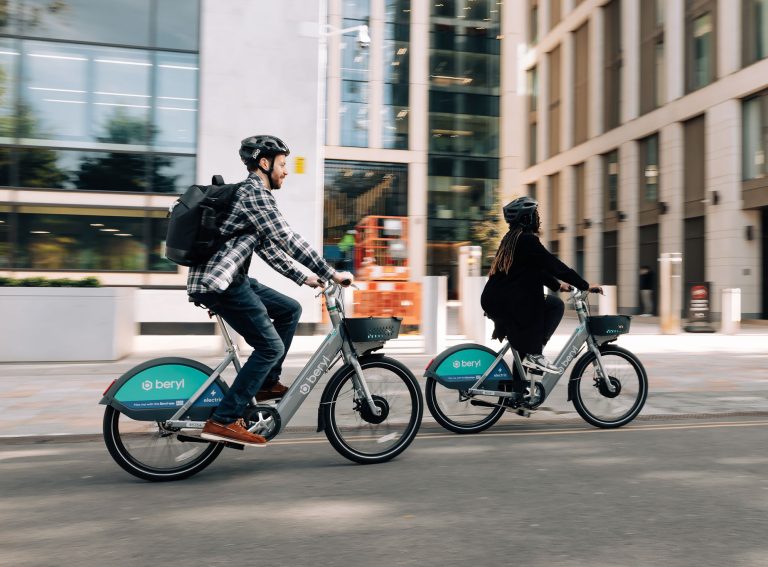Author: Matthew Pencharz, Head of Public Policy, Voi UK, Ireland and Netherlands.
Future innovation and growth in the micromobility industry depends on operators being able to invest in improvements to the service – hardware, software, processes and people. It is, therefore, vitally important that contracts with towns and cities should not demand excessive fees, which threaten the sustainability of the micromobility industry.
We know that there is huge potential for micromobility in the UK, Europe and across the world, with over 30 million rides in the UK across all trial areas, which only cover a proportion of our towns and cities. The market demand has been proven. The micromobility industry can offer sustainable transport that helps towns and cities meet their net zero goals without public subsidy and at pace – provided commercial conditions are right. Almost all other sustainable modes require large public investment, ongoing subsidy and time to deliver. While micromobility is not a silver bullet to decarbonise and decongest our towns and cities, it is definitely an important driver, offering a sustainable alternative to cars.
However, macroeconomic circumstances have changed rapidly in the past year, with capital raising becoming far more challenging. Where operators had been focussed on growth and the obtaining of market share, we have seen the industry taking stock, re-evaluating cost bases and having to ensure schemes are financially sustainable. Operators have all been faced with difficult decisions including redundancies, restructuring and in some cases withdrawing from markets.
Tight margins
Micromobility is frequently referred to as a tech industry – and indeed it is enabled by technology and digital platforms. But it is also heavily operational, and involves owning physical, capital-intensive assets, such as vehicle fleets which require regular maintenance and replacement. There are also long-term leases on infrastructure, such as warehouses, requiring maintenance and upgrading. The margins are tight, but of course this young industry is learning all the time how to improve its services while also running more efficient businesses.
City charges
We recognise that council budgets are tight – indeed getting tighter. However, public authorities demanding excessive fees to operate in their cities will threaten the financial stability of micromobility schemes, leading to the withdrawal of services and therefore the loss of this new shared sustainable transport mode. Revenue shares, in particular, lead to the worst of outcomes; there is little alignment of incentives and none of the financial risk is shared, with all falling on the operator.
Requests for additional financial contributions from operators to city authorities, which are scored as part of the appraisal process, could lead to decision-making by both operator and the city authority, where the quality and continual improvement of the service takes a back seat. The resulting effect could be a sub-par or unsustainable service and even the sudden withdrawal of the micromobility scheme.
Supporting operators long-term viability
Voi believes that tendering to operate city-wide micromobility services is the right approach to ensure the very best scheme is designed in the interests of users and cities alike. Tenders can ensure a race to the top among operators and multi-year contracts incentivise operators investing in their markets. However, public authorities must be mindful of the new economic reality we face. Incentives between operator and city must be aligned, and so tenders allow for long-term financially viable services. We are pioneers together and we need to work together to ensure that micromobility fulfils its potential as one of the key enablers of the transition to net zero. The UK shared transport charity CoMoUK, which promotes shared transport, including micromobility, has written to all councils to explain the implications of the change in macroeconomic conditions, and the impact of onerous city charges.
After more than two years of the e-scooter trials in England, across major cities and smaller towns, we have seen the market proven for this new safe, sustainable, affordable and convenient transport mode. Voi, which has experience of operating across 18 UK markets, has seen over 21 million rides completed by nearly two million individuals. Through Voi’s user surveys – with thousands of respondents – over a third of our riders tell us that they would otherwise have taken a car or taxi, meaning that Voi – and the whole micromobility industry is helping to drive the modal shift we need to decongest our towns and cities to meet our carbon reduction targets.
We at Voi are incredibly proud of how our services over the past four years on the continent and over two in the UK have transformed urban mobility. We know there is so much more that micromobility can do to facilitate a just transition to a net-zero economy, and we are ready to be partners with towns and cities to do just that – which is why we join with CoMoUK in calling for tenders and contracts which support the long term viability of the micromobility industry.











